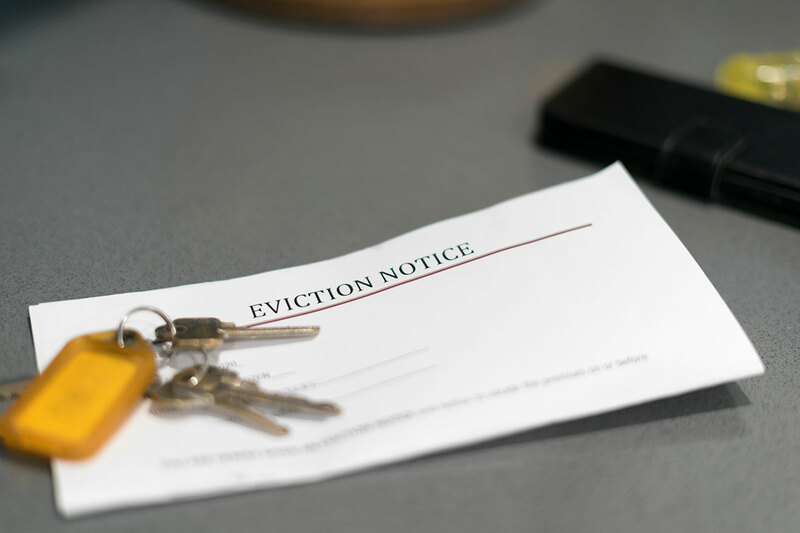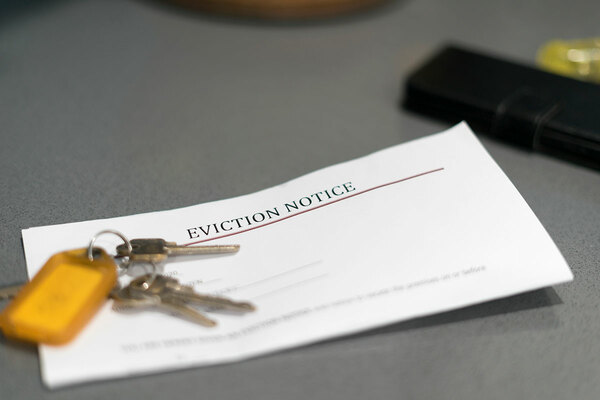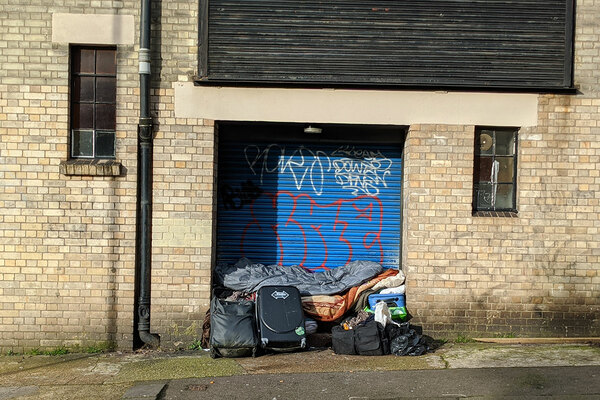You are viewing 1 of your 1 free articles
Renters must not be evicted during the pandemic because of the benefit system’s failings
Current proposals to prevent renters becoming homeless during the COVID-19 pandemic do not go far enough. PricedOut has arrived at a genuine solution, writes Reuben Young
No one should lose their home because of a global crisis that’s not their fault.
In just over three weeks, the government’s ban on evictions will come to an end. But even if this is extended without a sufficient safety net in place, we face an eviction and homelessness crisis the moment it’s lifted. Renters who have lost income and accrued arrears they can’t pay back will be unable to afford to stay.
The government’s solution is to kindly ask landlords to negotiate repayment arrangements with their tenants. Anyone who has spent any time in the private rented sector won’t need to be told that this is not a solution.
Opposition plans go a little further. It asks to “consider” a “temporary” increase of Local Housing Allowance (LHA) to the 50th percentile of market rents and for renters to be given two years to pay back arrears built up in this time. But this is asking renters to shoulder a big effective rent increase at a time when the economy is tanking and unemployment will rise.
A movement has grown to cancel all rent for any tenant who has lost earnings due to coronavirus. Different sources suggest different ideas for implementing this, with either government or landlords taking the hit. If the government paid it would be spending a lot of money on people who don’t necessarily need any support. And if landlords took the hit – assuming that this would somehow be legal – then many would have to sell up.
In normal times I would have absolutely no problem with private landlords having to dispose of their assets. The homes wouldn’t disappear, all it would mean is more homeowners and fewer landlords – a good thing. But if too many landlords sell at once in the midst of a crisis like this, a lot of renters will find themselves evicted at a time when it is harder to afford a move.
But landlords need to pay their share. It’s not fair for renters to take the fall for them and it’s probably not fair to let the public purse bail them out indiscriminately, either.
So here’s what we at PricedOut have arrived at as a genuine solution:
- Increase LHA to the 50th percentile of local rents – and this should be permanent. This would mean that for at least half of landlords of affected tenants, their tenant could afford the entire rent even if they have lost all of their earnings.
- As well as scrapping Section 21 no-fault evictions immediately, the government should amend Ground 8 evictions so that tenants who claim LHA and have paid their landlord at least the relevant LHA amount in rent throughout the crisis can’t be evicted for rent arrears accrued during this time.
When the labour market returns to normal, the government would partially revoke this change so that the full rent is due again but the arrears accrued during the crisis remain unchaseable.
What this would mean is that landlords would have to accept a rent haircut if their tenants lose a lot of income and their rent is higher than average. It would also mean that landlords would lose some income where tenants have accrued arrears up until now on a woefully low LHA rate that doesn’t cover rent in most of the country. The latter part could be topped up by the government by backdating some of the LHA, which should have been at higher levels all along.
More importantly, it means no tenant will be at risk of eviction or huge debts because of coronavirus. LHA is, by definition, all renters can afford if they lose work and have no savings. Expecting them to pay anything more during a time where entire industries have ceased operations and furloughed or laid off staff is ludicrous.
“Properties owned by private landlords are assets and it is reasonable for returns on assets to fall during the largest global crisis in a generation”
And it’s a lot more targeted than a blanket rent cancellation, as only tenants who genuinely need extra help, and the landlords of those tenants, would be affected. This also makes it cheaper and less likely to run into legal problems.
Government needs to get behind this plan so that renters aren’t punished for a crisis not of their making.
Properties owned by private landlords are assets and it is reasonable for returns on assets to fall during the largest global crisis in a generation.
But to renters they are not assets, they’re homes. If in times of crisis we protect assets before homes, then we have truly lost our way.
Reuben Young, director, PricedOut












